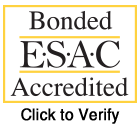Aspen Highlights & Updates
Aspen HR Continues National Expansion with New Office in Tampa, Florida. This expansion marks a big step in Aspen HR’s national growth strategy, bringing our expertise and exceptional service to a new hub of innovation and entrepreneurship! Read the full article.
Introducing New Specialized Executive Benefits Programs – Our custom-designed executive benefits programs go beyond traditional group insurance, offering a wider range of coverage options to address the unique needs of your highly compensated employees and executives.
We can offer Universal/Whole Life, Key Person Life and/or Disability, and High Limits Disability (HLD) insurance to cover a wide range of employee compensation not usually covered under a traditional group insurance program.

Reach out to your Aspen HR Representative with any questions or to get started with an executive benefits program.
Partner Spotlight
 Meet Level: New Partner in the Aspen HR Longevity Program – The Aspen HR Longevity Program goes beyond traditional benefits by offering Lifestyle Spending Accounts (LSAs) through Level.
Meet Level: New Partner in the Aspen HR Longevity Program – The Aspen HR Longevity Program goes beyond traditional benefits by offering Lifestyle Spending Accounts (LSAs) through Level.
This allows employees to easily track their account balance, submit claims, and access a wide range of wellness resources. Level’s seamless integration ensures a smooth and positive experience for your employees when managing their well-being benefits. Learn more about LSAs on our website and contact us to participate in the Aspen HR Longevity Program.
New Aspenites
Please join us in welcoming our newest team members: Crystal Williams, HR Associate, and Bella Luis, Client HR Account Manager!
HR and Legal Alerts!
Minimum Wage Updates – The following jurisdictions have minimum wage increases effective July 1, 2024. This list is non-inclusive of all localities:
- District of Columbia: $17.50
- Nevada: $12.00
- Oregon: $13.70, $14.70, $15.95 depending on region
- California (Healthcare): $18.00-$23.00 depending on facility
- Los Angeles, CA: $17.28
- San Francisco, CA: $18.67
- Chicago, IL: $16.20
DOL Final Overtime Rule Update – The DOL’s salary threshold for the executive, administrative, and professional exemptions will increase to $43,888 effective July 1, 2024. On Friday, June 28, 2024, a Texas court issued a preliminary injunction blocking the DOL from enforcing the rule only against the State of Texas as an employer. The rule is still enforceable against private companies and the country nationwide. There are several other lawsuits pending by business groups. However, all employers should comply unless another court ruling says otherwise.
CA Workplace Violence Prevention Act – Effective July 1, 2024, California Requires employers to develop and implement a workplace violence prevention plan (as part of their Injury and Illness Prevention Plans) that meets the new Labor Code Section 6401.9 requirements. Aspen has partnered with Next Level Strategies (“NLS”), a CA-based consulting firm with OSHA-certified consultants to support clients. NLS will assist in creating a customized plan and training. Employers with physical offices in California who need hands-on assistance, please contact your Client Service Representative for pricing and scheduling.
Chicago Paid Leave – Effective July 1, 2024, Chicago’s Paid Leave and Paid Sick and Safe Leave Ordinance provides eligible employees with up to forty (40) hours of Paid Sick Leave (“PSL”) and up to forty (40) hours of Paid Leave For Any Reason (“PLFAR”). Employers may offer 80 hours of combined paid leave instead of 40 hours of PLFAR and 40 hours of PSL. If an employer chooses to do so, the employee is eligible to use their combined leave by the 30th calendar day following commencement of employment.
The ordinance requires certain employers to pay out PLFAR upon separation of employment or transfer outside of Chicago’s geographic limits, depending on the employer’s size. Only employees working inside the limits of Chicago are counted towards the threshold.
Small employers: Employers with 1-50 covered employees are not required to pay out unused PLFAR upon separation of employment or transfer. Mid-size employers: Employers with 51-100 covered employees are required to pay out up to 16 hours of unused PLFAR on separation of employment or transfer.
Instead of the accrual or frontload methods, the ordinance explicitly allows employers to use unlimited paid time off policies for compliance. If an employer provides unlimited paid time off on the employee’s first date of employment and continues such policy for each subsequent benefit period, no carryover is required. However, employers that provide an unlimited paid time off policy must still pay employees the monetary equivalent of 40 hours of paid time off less the hours of paid time off used in the 12-month benefit period upon an employee’s separation from employment or transfer.
Texas Data Privacy – Effective July 1, 2024, the Texas Data Privacy and Security Act (“TDPSA”) will become effective. The TDPSA applies to entities that:
- Conduct business in Texas or produce a product or service consumed by Texas residents.
- Process or engage in the sale of personal data; and
- It is not a small business as defined by the Small Business Administration (“SBA”).
The TDPSA requires controllers to provide consumers with a reasonably accessible and clear privacy notice regarding the processing and sharing of personal data and how consumers may exercise their rights under the Act. This includes:
- the categories of personal information processed;
- the controller’s purpose of processing the personal data;
- categories of personal data shared with third parties;
- the categories of third parties with whom consumer’s data is shared; and
- a description of the methods required under the Act through which consumers can submit requests to exercise their consumer rights.
EEOC Provides Employers with Workplace Investigation Tips – The EEOC’s Enforcement Guidance on Harassment in the Workplace contained some valuable information about investigations. The guidance clarifies that an employer is responsible for conducting a “prompt and adequate investigation” once it has notice of potentially harassing conduct – and for taking “reasonable corrective action” to prevent any improper conduct from reoccurring.
The EEOC defines prompt as within one day after a complaint has been filed and no longer than two months to open an investigation after the complaint has been made. The guidance states that prompt is fact-sensitive and depends on considerations such as the nature and severity of the alleged conduct.
The Guidance explains that an investigation is adequate if it is sufficiently thorough to “arrive at a reasonably fair estimate of truth.” The investigation should reflect a genuine effort to fairly and impartially determine what conduct occurred, whether it violated a company policy, and if so, what appropriate action should be taken.
The guidance offers advice on how to conclude an investigation. First, inform the involved parties. Upon completing your investigation, the Guidance states that you should inform the complainant and alleged harasser of your determination. Where appropriate, you should notify them that you will take appropriate action. At a minimum, you should tell the complainant whether the investigation found the allegations “substantiated” or “unsubstantiated.” Second, retain the records. The Guidance states that you should retain records of all harassment complaints and investigations.
Have questions about these updates? Don’t hesitate to contact our team!







